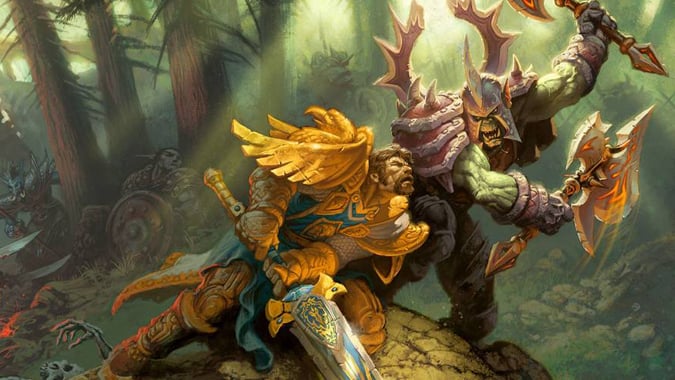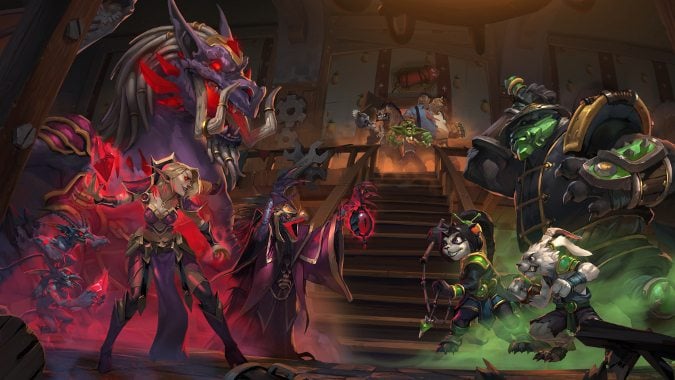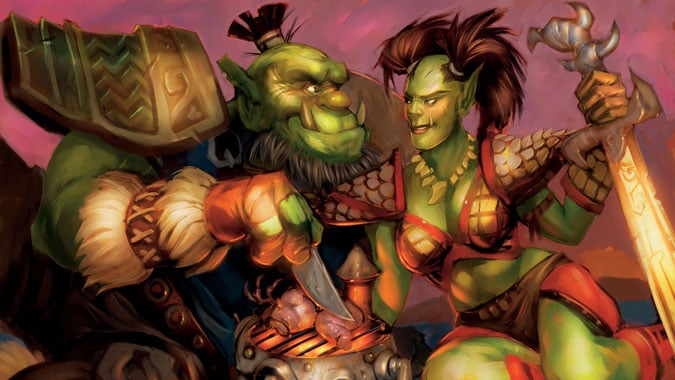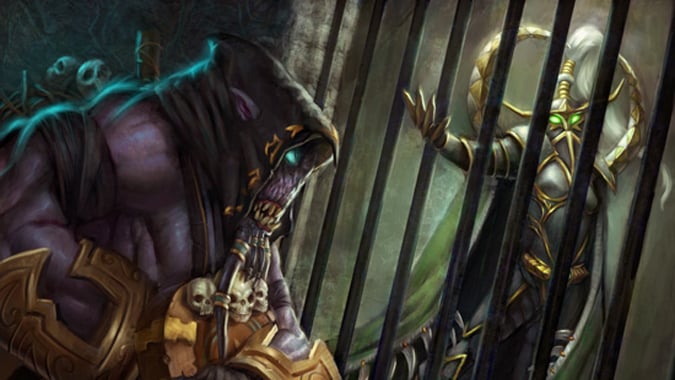Role Play: When styles collide

There are a wide variety of roleplaying guilds, groups, and organizations out there in World of Warcraft. Every guild has its own rules and regulations in regards to roleplay. Equally as varied are the roleplayers themselves – and every individual has their own method of roleplaying. Variety is generally pretty great. It means that it’s doubtful you’ll ever run out of interesting characters to meet.
But this variety means that there’s also a variety of roleplaying styles out there. Some guilds and groups plot out all major stories in advance; others handle things off the cuff. There are guilds and groups that like to schedule every interaction, and others that just let the roleplay happen spontaneously. Combat could be handled through rolls, duels, or simply acting out a fight as it happens.
Everyone’s got their own method of roleplaying. So what do you do when you find yourself clashing with someone else’s style?

Interaction between guilds
Every guild or group usually has its own set of rules for members to follow. Rules in roleplaying guilds aren’t generally meant to be restrictive. Most of the time, these rules are put in place for two reasons. First, to make sure people are behaving themselves. Second and more importantly, to make sure that everyone’s on the same page when it comes to roleplay.
There’s nothing stopping you from talking to members of guilds other than your own. But you have to keep in mind that just as your guild may have rules or guidelines for interactions, their guild probably has the same. Sometimes, these rules are vastly different when it comes to things like handling combat scenarios, storylines, or even how or when to speak out of character.
What you want to remember is that there’s no right or wrong way to roleplay. There’s also nothing wrong with having different sets of rules to follow. Roleplaying isn’t about rules set in stone – even when events are planned, there’s a certain amount of spontaneity in any given scenario. But if you’re planning any storylines that cross guild lines, you should take note of any conflicts in how these scenarios are handled, and figure out a compromise that works for both parties involved.

Combat and RP
Typically the scenarios where players will most often clash are combat situations. Some people are all about spontaneously writing out the combat. Others are more structured – there are even people that will happily assign themselves hit points and use the in-game dice to determine how much damage they take. There’s no “correct” method here – there’s just a variety of styles.
If you’re going to start up combat with another character, check to see what kind of combat they’re used to. Let them know how you usually handle combat situations. If there’s a conflict, try and figure out a method that works for both of you. If nothing else, a quick /roll 100 can determine who has the upper hand in any given encounter. Using the in-game dice is usually random enough to satisfy both parties.
You also want to establish how you handle character injuries. Some people are okay with situations where their character could be injured, others might not be comfortable with that idea. What’s important here is that you establish all this information before you engage in combat. The last thing you want to do is interrupt an exciting situation with discussion over technicalities.

The importance of compromise
Roleplayers can clash in other situations, too – it’s not just limited to combat. Some people are absolute sticklers for following established lore, others are more lenient. Some people will denote out of character speech with brackets, others will simply consider all whispers OOC. You may even run into situations where people write in different styles – one person is used to paragraphs of exposition, while the other is more accustomed to quick sentences.
In each of these scenarios, communication is key. Don’t get upset – talk it out. More often than not, a simple out of character conversation can avoid any larger issues before they have a chance to make themselves known. Being friendly and polite will get you much, much farther than getting upset with another player.
Doing so also helps reinforce that divide between in-character actions, and out of character actions. If you’re playing a villain role, or even just a character that isn’t particularly friendly, this can be a big help. People tend to be a lot more willing to work with surly or unpleasant characters if they realize it’s just a role you’re playing.

Walking away
And if a compromise can’t be reached, there’s no reason you need to continue roleplaying with each other. Remember – you aren’t obligated to roleplay with anyone. If your styles clash that badly, there’s nothing wrong with simply ending the RP and politely taking your leave. There’s no need to have an argument about it.
With such a wide variety of characters and styles out there, clashes are almost inevitable in roleplay. There’s no such thing as one predetermined, “right” method of doing anything, and there’s no need to get upset when one of these situations arises. Remember, though, that compromise means being willing to change things up on occasion. Don’t be afraid to try new styles and methods of roleplay. Who knows, you might find something you want to adopt into your own roleplay in the process.
Please consider supporting our Patreon!
Join the Discussion
Blizzard Watch is a safe space for all readers. By leaving comments on this site you agree to follow our commenting and community guidelines.
 @Shadesogrey
@Shadesogrey




